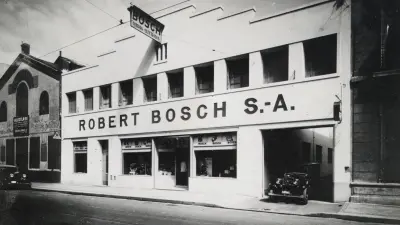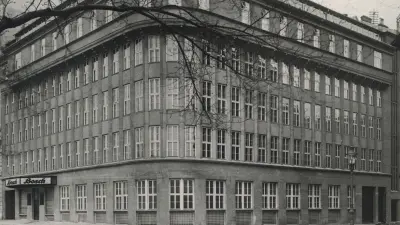25 years Bosch regional organisation in China
From “Mr. Bosch” to a new Headquarters
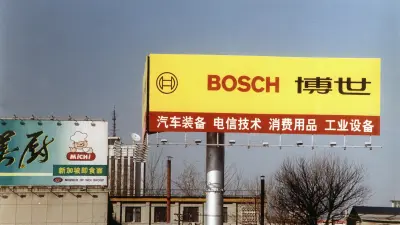
Bosch has been present in China since 1909, with ups and downs, up to its current presence with over 60,000 associates. The year 1999 marks a new chapter. An umbrella organisation was established as a point of contact for all Chinese customer companies and a competence center for central tasks such as legal affairs, patents and human resources.
First step: Chief Representative
By the time Bosch established its first headquarters in China in 1999, the company had already gained a substantial amount of experience. In April 1989, Helmuth Kuklinski — the “chief representative,” as he was known — had opened an office for Bosch in the capital city of Beijing. Having a “Mr. Bosch” as a main point of contact apart from the many Bosch divisions operating in the country was essential. Kulinski’s predecessor Klaus Dieter Schwantes, who maintained the first Bosch office in Hong Kong in 1986, was adamant on this point. “Chinese people weren’t used to a succession of different contact persons, and they didn’t like it either,” Schwantes had said. “We needed to exude dependability in order to build trust.”
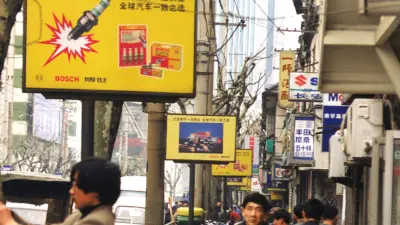
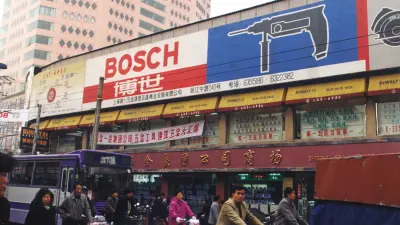
The economic liberalization that started in the 1980s initially paved the way for projects aimed at producing locally under license. For Bosch, it was a case of “crossing the river by feeling the stones,” as Deng Xiaoping, the architect of the country’s economic liberalization, had described China’s economic strategy. The idea was to rely on a cautious plan that was adaptable to changing conditions, rather than a rigid schedule. Uwe Raschke, the board of management member responsible for China from 2009 onward, summed up how important it was to amass expertise on the ground: “If you want to manage a far-off market from your corporate headquarters in Germany, you won’t stand a chance. You won’t understand the customers, the competition, or the market.”
Exploring the terrain
When Helmuth Kuklinski opened the Beijing office in 1989, he was the first Bosch associate to work permanently in the People’s Republic of China. He was joined by Wang Yanyan, a local economics graduate who had also studied German and would later become head of the Bosch tax department in China. Looking back, Wang said that her role was initially that of a cultural interpreter, whose job included finding the right words to convey the curt and precise statements of German negotiators (which could have come across as brusque and unfriendly to their Chinese counterparts), or translating the roundabout and exceedingly polite words of Chinese negotiators into the shorter formulations desired by their German counterparts (such as approval or rejection). The first contracts to establish joint ventures were signed in 1994. One of the first joint ventures manufactured injection technology for automotive engines in collaboration with Chinese partners, other ventures were established for power tools, telecommunications equipment, and heating technology.

Centralization as a goal
Nonetheless, Bosch operations in China remained decentralized until 1998. The divisions operated independently and reached agreements about manufacturing and marketing at a regional level with their respective partners and the authorities responsible. This resulted in a lot of disadvantages, and in 1999, it prompted Bosch to set up a central office for all interdisciplinary activities: Bosch (China) Investment Co. Ltd. The Chinese foreign trade ministry gave its approval in January, and the headquarters opened its doors in March.
Expertise from a single source
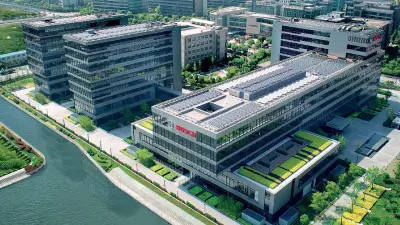
The new headquarters was located in China’s biggest trade hub, Shanghai, rather than in the capital city of Beijing. Ninety years earlier, Shanghai had been the first place in Asia where Bosch sold its products. The offices in Shanghai allowed Bosch to consolidate its expertise relating to tax issues, as well as to patents, customs procedures, legal matters, and corporate communications. While German expatriates made up the majority of associates at the offices in the early days, local Chinese associates gradually began to assume more and more positions at the new headquarters, including several senior management posts. Often, these associates had completed their education outside China and gained experience of working for Bosch around the world. Within headquarters, their knowledge of both Bosch and their home country meant that they took on the role of intercultural ambassadors.
Bosch in China today
Since 1999, Bosch has grown rapidly in China. Outside Germany, it is the country in which Bosch employs the most people and generates the highest sales revenue — with products tailored to the Chinese market that were often developed in the region itself. It will be exciting to see what the next 25 years hold in store.
Brand name
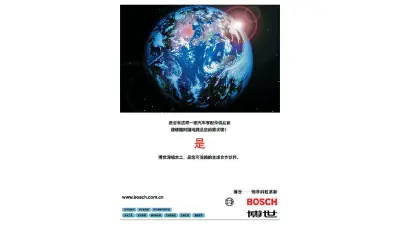
How do you write “Bosch” in Chinese?
One of the most important early steps for Bosch in China was agreeing on a convention for how to write the Bosch brand name in Chinese. It was important that the selection and arrangement of the Chinese characters triggered positive connotations in all conceivable Chinese dialects, and the name chosen for Bosch had to steer clear of any negative linguistic associations. To achieve this, Bosch consulted Chinese linguists, and after a long process of deliberation, the right combination of characters was found.
Author: Dietrich Kuhlgatz

